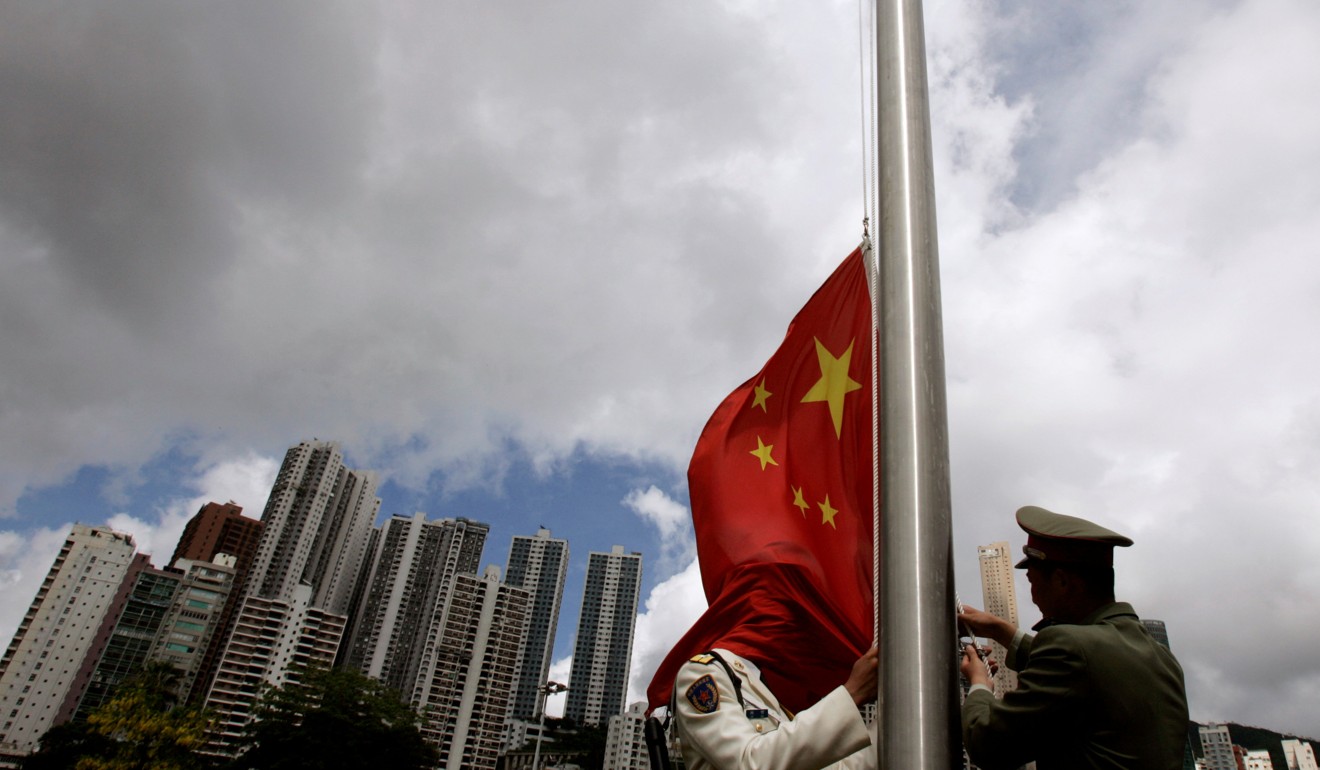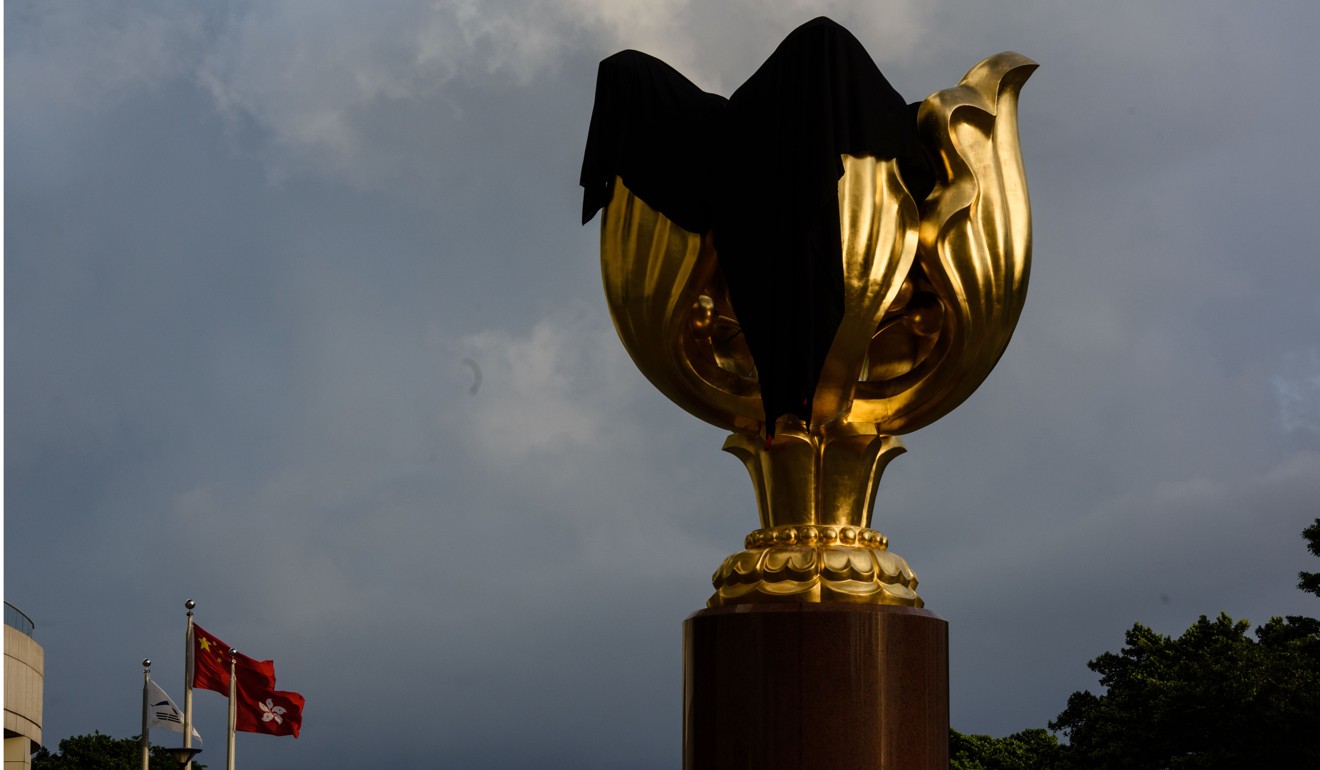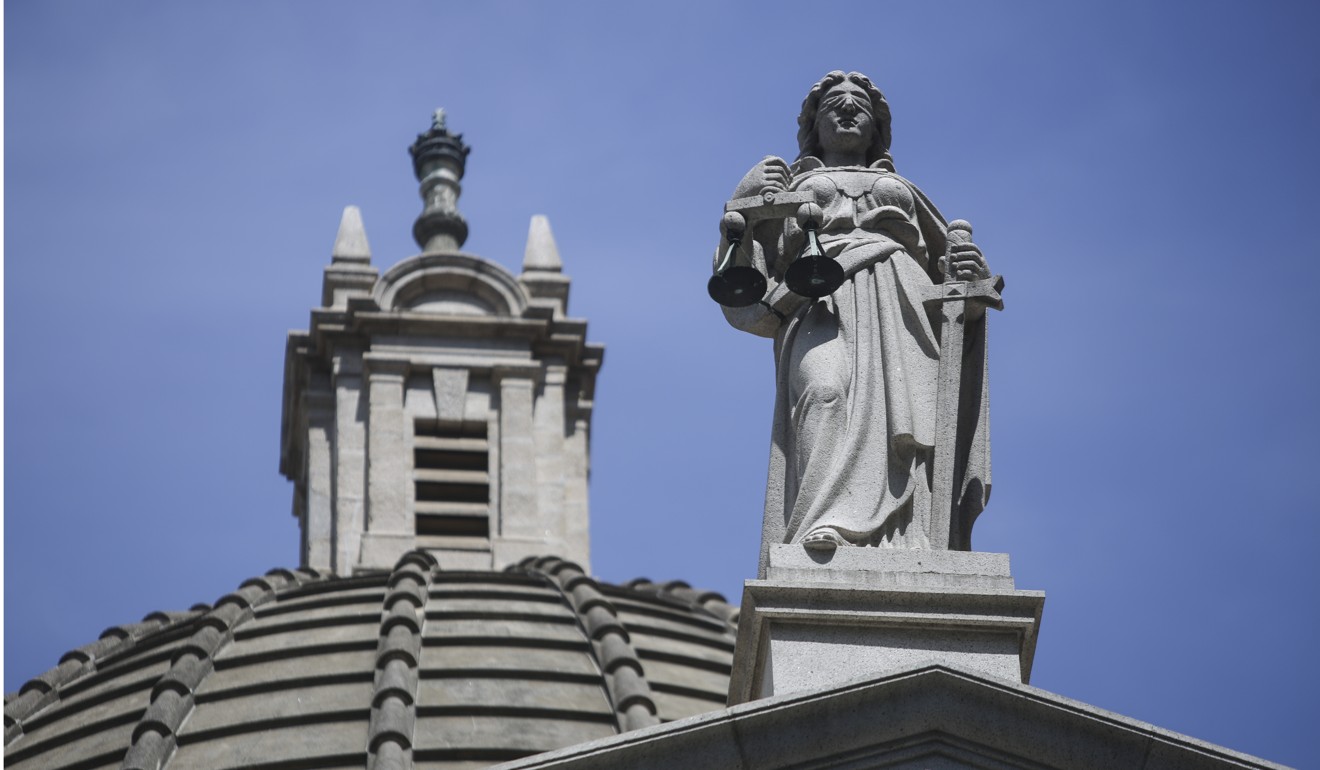
Beijing’s rightful role in Hong Kong affairs should not be seen as interference
Song Xiaozhuang says it is wrong to accuse the central government of undermining Hong Kong autonomy every time it performs its duties as laid out in the Basic Law
Even as the Hong Kong Special Administrative Region gets ready to celebrate the 20th year of its establishment, many questions are still being asked about the role of the central authorities in Hong Kong and their relationship with the territory. Some answers are in order.
Basic Law ‘re-education’ urged by Beijing’s former top man in Hong Kong
The SAR authorities refers to the chief executive and his executive government, the legislature and the judiciary.
Next, all provisions of the Basic Law can be classified into three categories: those that spell out the responsibilities of the central authorities; those relating to the relationship between the central authorities and the SAR; and those that limit the autonomy of the SAR (articles 17, 18 and 158).

An understanding of these roles and duties would help to clear the confusion over “one country, two systems”. For example, while the Hong Kong chief executive needs to report to the president and premier, the Central Military Commission may not give orders to the Hong Kong police in peace time. Further, although the SAR government should not be precluded from diplomatic negotiations directly affecting Hong Kong and being conducted by the central government, the former cannot take the place of the latter in conducting diplomatic or defence negotiations itself (articles 13 and 14).
The Basic Law provisions that touch on the relationship between the central authorities and the SAR appear to cause the most confusion
On fiscal management, the SAR prepares its own budget, but the central government supervises it – the chief executive is required to submit the budget and final accounts to the central government for the record (article 48(3)), but if Hong Kong fails to, say, keep its “expenditure within the limits of revenues” (article 107), the central government can be expected to step in and ask for remedial measures to be taken.
China being a unitary nation, the central government is responsible for the governance of its regions, for better and worse. If Hong Kong authorities do not exercise their powers in accordance with the Basic Law, the central government might issue directives or require preventive measures under article 48(8).
The Basic Law provisions that touch on the relationship between the central authorities and the SAR appear to cause the most confusion. For example, article 45 and Annex I that deal with the selection of the chief executive make it clear that a chief executive must be elected locally and the elected person must be appointed by the central government. Thus, both the central and Hong Kong governments play a role in the process. The selection of the chief executive and the method by which he or she is selected are neither purely the affairs of the central government nor of the SAR government. In this respect, the central government performing its duties could not be said to be interfering in Hong Kong’s autonomy. It is just doing its job, and Hong Kong should accept it.

Beijing cannot wish away the growing sense of hopelessness in Hong Kong
Another example relates to the workings of the Hong Kong judiciary and the interpretation of the Basic Law. When a court case falls within the purview of the SAR government, then adjudication may be purely a matter of local autonomy. If the case also concerns the responsibilities of the central authorities, or the relationship between the central authorities and Hong Kong, then the Court of Final Appeal, in accordance with article 158, is required to seek legislative interpretation from the NPC Standing Committee. The Court of Final Appeal is then required to abide by these interpretations.
It is not correct to accuse the Standing Committee of undermining the rule of law by issuing a legislative interpretation
As article 158 makes clear, legislative interpretations are of a higher authority than judicial interpretations, for it is the NPC Standing Committee that confers to Hong Kong courts the power of interpretation.
The provision also makes a distinction between the power of final adjudication of the case and the power of final interpretation of the Basic Law. The Court of Final Appeal is authorised to exercise the former power, while the latter power is vested in the NPC Standing Committee. Both powers are ingredients of the rule of law, so it is not correct and indeed illegal to accuse the Standing Committee of undermining the rule of law by issuing a legislative interpretation.
Former Hong Kong chief justice Andrew Li reflects on how rule of law has fared in last two decades

To use common law jargon, a judgment of the Court of Final Appeal, which has the power of final adjudication, will be preserved even if its ratio decidendi contradicts the NPC Standing Committee’s interpretation, but the judicial interpretation would no longer be a precedent if it contravenes that of the NPC Standing Committee, which has the power of final interpretation.
As the saying goes, a little knowledge is dangerous. This is true for anyone making conclusions based on a little knowledge and poor reasoning.
Defending Hong Kong’s Basic Law: why it should be honoured by all, including Beijing
Some people who decry central government interference like to point out that article 22 states that “no department of the central government and no province, autonomous region, or municipality directly under the central government may interfere in the affairs which the Hong Kong SAR administers on its own in accordance with this Law”. The problem is, they mistake the central authorities as being departments of the central government and provincial governments. They would not have made this mistake if they had bothered to study the government’s organisational chart.
Thus it is clear that the central authorities may indeed directly handle the affairs for which they are responsible and may also take a lead in affairs that touch on the relationship between the central authorities and the SAR. Further, the central government has a supervisory role (article 48) and even a preventive and a corrective role (article 48).
Rather than limiting the functions and powers of the central authorities, article 22 serves to protect the SAR’s autonomy from the undue influence or interference from government institutions that are of a similar ranking with it in the government hierarchy. This provision aims to avert unnecessary regional or departmental conflict. Leaders were wise to make this arrangement, failing which the Basic Law might not have been called a “great code” by the great Deng Xiaoping ( 鄧小平 ).
Song Xiaozhuang is a professor at Shenzhen University’s Centre for Basic Laws of Hong Kong and Macau
